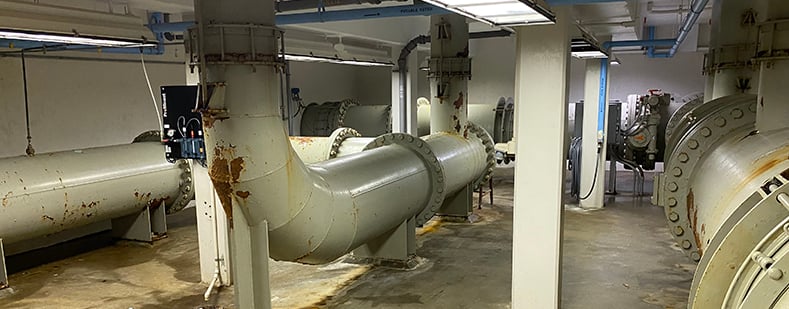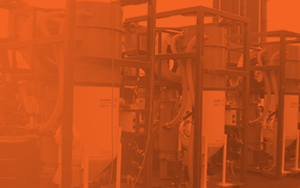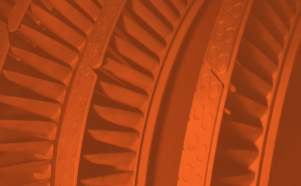Safe drinking water is vital to communities everywhere. When corrosion became visible on the exterior of pipes at the Lincoln Water System pump stations in Lincoln, NE (USA), action needed to be taken. With four active pump stations delivering fresh water to the City of Lincoln, only specific stations were able to be out of service at any point in time. It was vital to ensure that water use capacity remained stable for residents throughout the completion of this work.
Over time, pipes can corrode due to failed coatings and oxidation. When this occurs, corrosion begins to weaken the metals, compromising the structural integrity of the pipes and pipelines. If left untreated, cracks and holes can appear, ultimately affecting the efficacy of the pipes, and in severe cases, water quality.
At the LWS pump stations, specifications called for commercial blast cleaning, or SP-6. This specification required the removal of any loose coatings, as well as visible rust and corrosion on approximately 10,500ft² of pipes. In order to accomplish this level of cleaning, the contractors at McGill Restoration chose to use Sponge-Jet’s Silver 30 Sponge Media™.
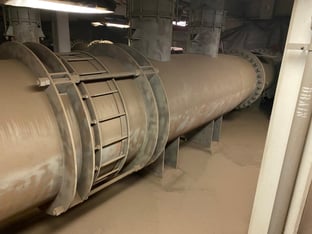 When choosing their abrasive blasting media, McGill Restoration had to keep the unique challenges of blasting in a pump station in mind. During this particular project, the blasters worked in confined spaces with little ventilation, making minimal dust generation a top priority for worker safety. Due to this small space, media with low rebound was also a necessity, as any damage to the sensitive instruments of the pipeline gallery could lead to equipment failure and ultimately, downtime for the plant.
When choosing their abrasive blasting media, McGill Restoration had to keep the unique challenges of blasting in a pump station in mind. During this particular project, the blasters worked in confined spaces with little ventilation, making minimal dust generation a top priority for worker safety. Due to this small space, media with low rebound was also a necessity, as any damage to the sensitive instruments of the pipeline gallery could lead to equipment failure and ultimately, downtime for the plant.
When using ordinary methods of abrasive blasting, such as garnet or coal slag, it is not uncommon for them to rebound and actively cause damage to nearby gauges and valves. Passive damage in the form of grit intrusion into sensitive equipment is common with abrasives like coal slag and crushed glass. This damage may not be noticed until weeks or months after the project has ended.
Furthermore, it was also critical that no airborne particles make their way into any pipelines, pumps, motors, or any other equipment used in the plant, as this water directly feeds to the city of Lincoln. Sponge media was ultimately chosen as the preferred method of abrasive blasting over other methods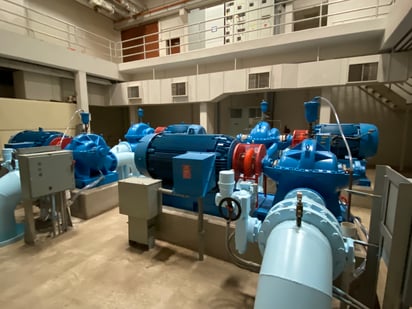 of traditional abrasive blasting media due to its low-dust, recyclability, and low-rebound.
of traditional abrasive blasting media due to its low-dust, recyclability, and low-rebound.
Jennifer Loukota, an estimator at McGill Restoration stated, “Sponge-Jet was specifically selected due to its low dust capabilities around instrumentation in the pump stations. This allowed us to install limited containment while protecting the equipment, and work more efficiently through the project.”
Overall, using Sponge-Jet’s Silver 30 Sponge Media™ saved McGill time, money, and resources in the surface preparation process due to its recyclability and low-dust. Thanks to the hard work and dedication of the McGill Restoration team, the pipes have been properly blasted and coated, and are looking better than ever!

